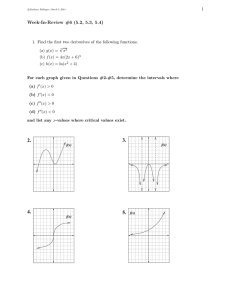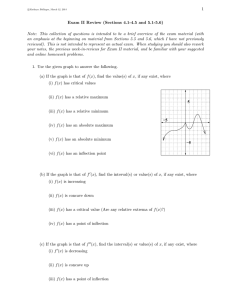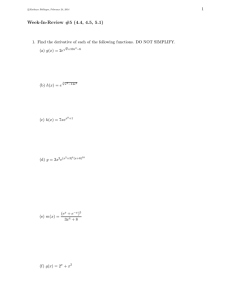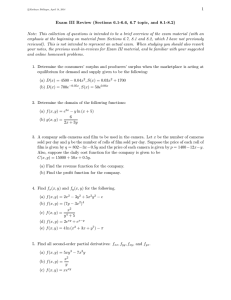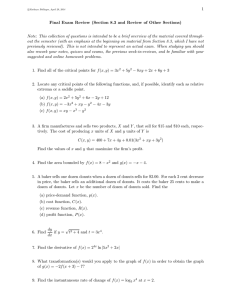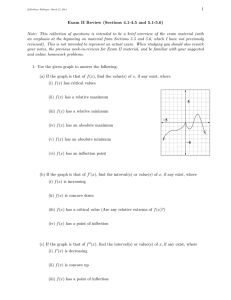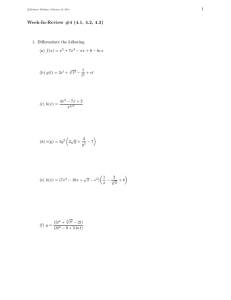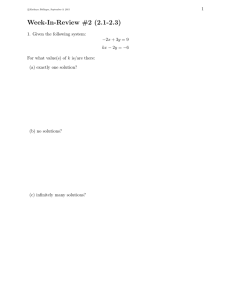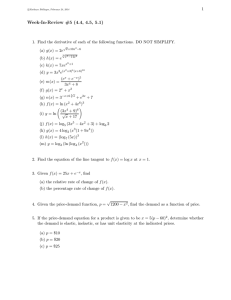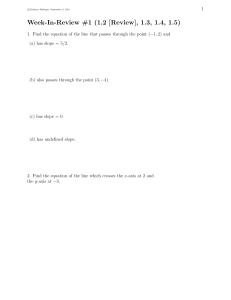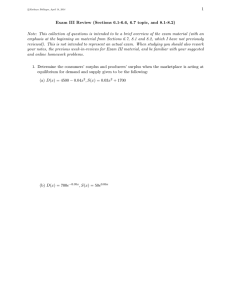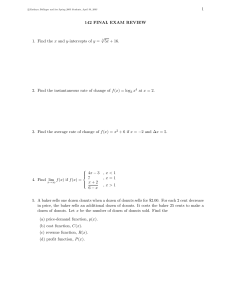Document 10412602
advertisement
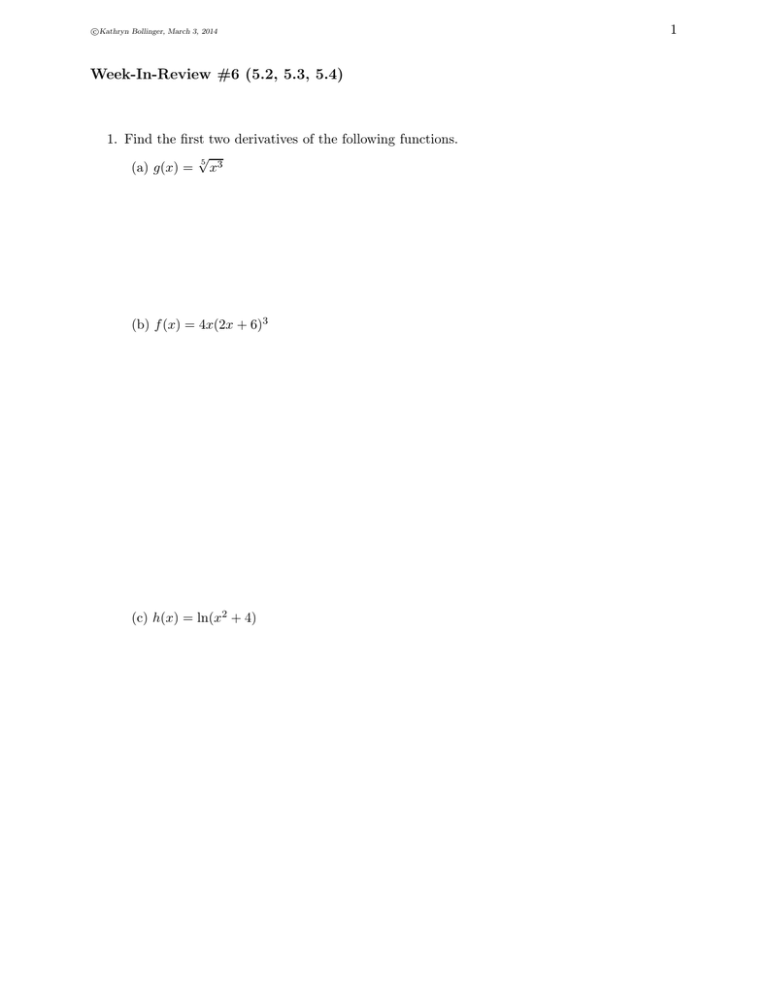
c Kathryn Bollinger, March 3, 2014 Week-In-Review #6 (5.2, 5.3, 5.4) 1. Find the first two derivatives of the following functions. √ 5 (a) g(x) = x3 (b) f (x) = 4x(2x + 6)3 (c) h(x) = ln(x2 + 4) 1 2 c Kathryn Bollinger, March 3, 2014 For each graph given in Questions #2-#5, determine the intervals where (a) f ′ (x) > 0 (b) f ′ (x) < 0 (c) f ′′ (x) > 0 (d) f ′′ (x) < 0 and list any x-values where critical values exist. 3. 2. f(x) f(x) 4. 5. f(x) f(x) c Kathryn Bollinger, March 3, 2014 2x2 + 4x − x3 x→∞ 3 + 7x3 + 8x 6. Find lim x2 + 2x + 5 x→−∞ 2x2 + 3x4 7. Find lim 3x4 + 2x x→−∞ x + 5 8. Find lim 2ex + 3e−x x→∞ 5e−x − 7ex 9. Find lim 2ex + 3e−x x→−∞ 5e−x − 7ex 10. Find lim 3 c Kathryn Bollinger, March 3, 2014 4 For each function in Questions #11-#13, find the following information and use it to sketch each function. (a) Domain of f (x) (b) Intercepts (c) Asymptotes/Holes (d) All critical values (e) All intervals where f (x) is increasing/decreasing (f ) Any relative extrema (g) All intervals where f (x) is concave up/concave down (h) Any inflection points 11. f (x) = x4 − 6x2 + 5 c Kathryn Bollinger, March 3, 2014 12. f (x) = 2x −9 x2 5 c Kathryn Bollinger, March 3, 2014 13. f (x) = √ 3 2x + 5 6 7 c Kathryn Bollinger, March 3, 2014 14. Sketch the graph of a function that satisfies the following conditions: Vertical Asymptotes at x = −3, 0, 2 Horizontal Asymptote at y = 0 f ′ (−2) = 0 f (−2) = 1 Inflection point: (1,0) f ′ (x) < 0 on (−∞, −3), (−3, −2) and (2, ∞) f ′ (x) > 0 on (−2, 0) and (0, 2) f ′′ (x) < 0 on (−∞, −3) and (0, 1) f ′′ (x) > 0 on (−3, 0), (1, 2) and (2, ∞) 15. Sketch the graph of a function that satisfies the following conditions: Continuous for all reals Domain: All reals Range: All reals greater than or equal to 4 f ′ (x) > 0 on (−5, 0) and (5, ∞) f ′ (x) < 0 on (−∞, −5) and (0, 5) f ′ (0) undefined f ′′ (x) > 0 on (−∞, 0) and (0, ∞) 8 c Kathryn Bollinger, March 3, 2014 16. Using the given graph of f ′′ (x), sketch possible graphs of f ′ (x) and f (x). f’’(x) 5 −5 5 −5 c Kathryn Bollinger, March 3, 2014 9 17. Use the Second Derivative Test, if possible, to locate any relative extrema of the following functions. If necessary, use the First Derivative Test. (a) f (x) = 2x4 − 2x2 . (b) f (x) = 2(x − 5)6
